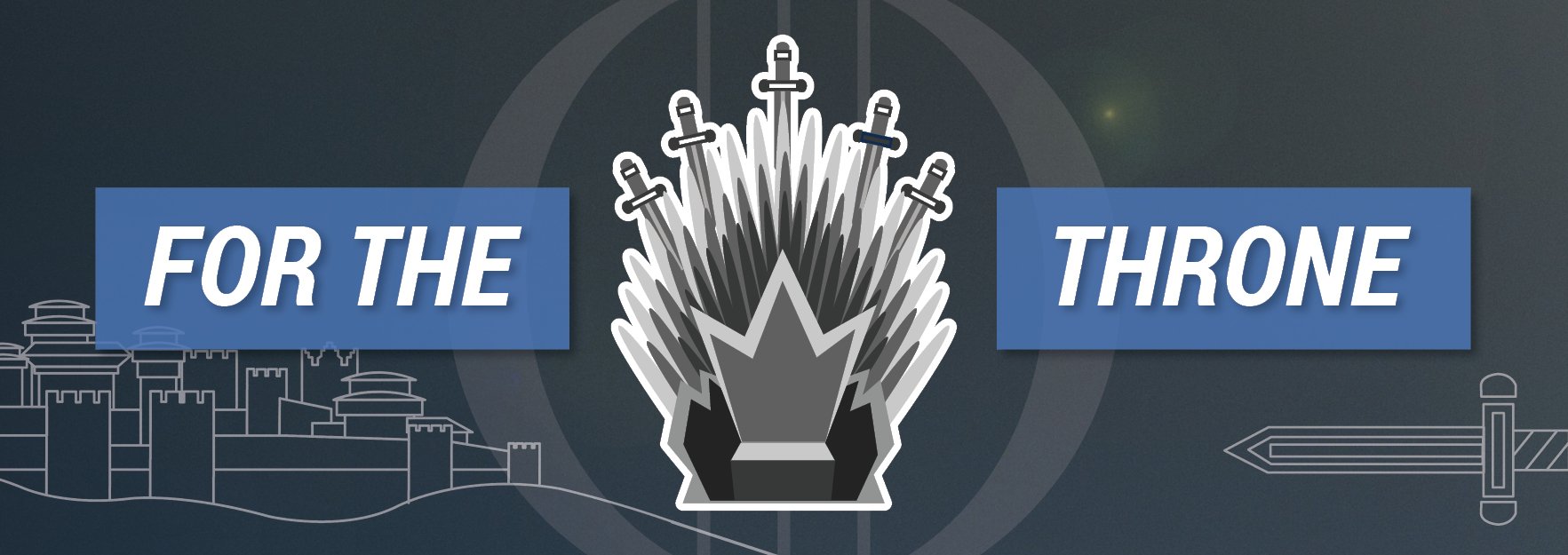Valentines sale - up to 30% off training courses – use code: VALENTINES26SA
23 May 2019 | Updated on 23 May 2019
For the throne: a game of project managers
Disclaimer: for those who are not Game of Thrones fans, we’re not sorry. We’re just not. Also spoilers. Game of Thrones has ended. Whether this brings tears of pain and anguish to your e...

Disclaimer: for those who are not Game of Thrones fans, we’re not sorry. We’re just not.
Also spoilers.
Game of Thrones has ended. Whether this brings tears of pain and anguish to your eyes as you mourn the end of such a phenomenal series, or tears of joy that at last your friends and colleagues will stop talking about it, it’s got us thinking about the parallels with project management and business leadership.
What makes Game of Thrones so watchable, for so many (over 19 million people tuned in to watch the finale) are the main characters, and their relentless pursuit of power. The whole premise of Game of Thrones revolves around the various would-be-leaders, and their attempts to sit on the Iron Throne and rule over the seven kingdoms of Westeros.
Their ruthless, and at times desperate, attempts make some great telly, and happily for ILX, give us a number of lessons. And it will come as no surprise that many of the pretenders wouldn’t actually make good leaders.
So, what makes a good leader? What are some of the qualities you need to possess? And are there any lessons in leadership to be learnt from the characters in Game of Thrones? We think so!
Communication
The bedrock for any leader is the ability to communicate – what needs to be done, by whom, and, most importantly, why. Whether communicating internally or externally, without context, leaders will find it very difficult. Context allows leaders to flex their approach and delivery styles to help them achieve the desired outcome. In Game of Thrones, we often see Tyrion demonstrating this ability when advising other characters – his no-nonsense approach, wit and (most of the time) logical way of thinking, make him an exemplary communicator.
Decision-making
It may seem obvious, but when it comes to leading people, we know that being decisive and making the right decision is important. Understanding that complex decisions need more than just experience and intuition; they need an analysis based on facts. Great leaders make ‘great’ decisions by working with their teams, giving due consideration to all available options, and combining this with their experience.
Arguably, Sansa is a good example here, considering how far she’s come. From a spoilt, naïve young girl to the Queen of the North – stronger, wiser and full of confidence – Sansa takes control of her situation, demonstrating an ability to see what needs to be done, weighing up her options and then making decisions accordingly.
Empathy
Being able to put yourself in others’ shoes, especially those in your team, is an important skill for any leader wishing to bring out the best in people. Understanding how others feel, building up trust and observing how your actions affect your colleagues’ performance, will help tremendously in ensuring that your team is happy and performing to their best. A couple of cautionary tales from unsuccessful leaders here: Cersei and Daenerys. Yes, they’re complex characters, but somehow a ruthless tendency to murder anyone who crosses you, be that with wildfire or dragon fire, doesn’t seem like the best example of empathetic leadership…
Negotiation
Sometimes, when trouble rears its ugly head during a project – be that; project delays, over-spend, or disagreements with stakeholders – the only way out is through negotiation. Again, Tyrion is a great example here of someone who talks his way out of things…most of the time successfully. Tyrion’s knowledge of how those around him function and what they value, along with a fair amount of courage, means he is able to negotiate fair deals that, in theory, should work out for the best…here’s hoping…
Teamwork
We all know that dividing and conquering is often the only practical option. Taking on kamikaze-style, big bang solo missions rarely work out, hence the rise of agile methodologies. This is especially prevalent if your project involves fighting battles against an army of dead people. An effective leader will know how to utilise those around him or her to their advantage, building up trust and investing time in supporting them to ensure they perform at their best. A few Game of Thrones characters to avoid having on your team: Robb and Arya Stark. Yes, Arya is a total badass and defeated the Night King, but we all know she works alone and doesn’t play well with others. And Robb, he gambled his entire army and family’s fate on a whirlwind romance…pretty sure everyone remembers how well that worked out for him…
So, although we can probably all agree that Westeros isn’t exactly the best place to be looking for leadership inspiration, there’s plenty of food for thought when it comes to the qualities needed to lead successful projects. But why not delve a little deeper?
If you’re interested in developing your leadership skills, how about an APM qualification? Across both the Project Fundamentals and Project Management courses, you’ll learn about project management and control, people management, and various other leadership skills. Or if programme management is more on your wavelength, our MSP® courses cover leadership and stakeholder management, as well as how to plan, organise, control and track the benefits of a programme.
These are just a couple of options – to browse our full selection of courses, click here.